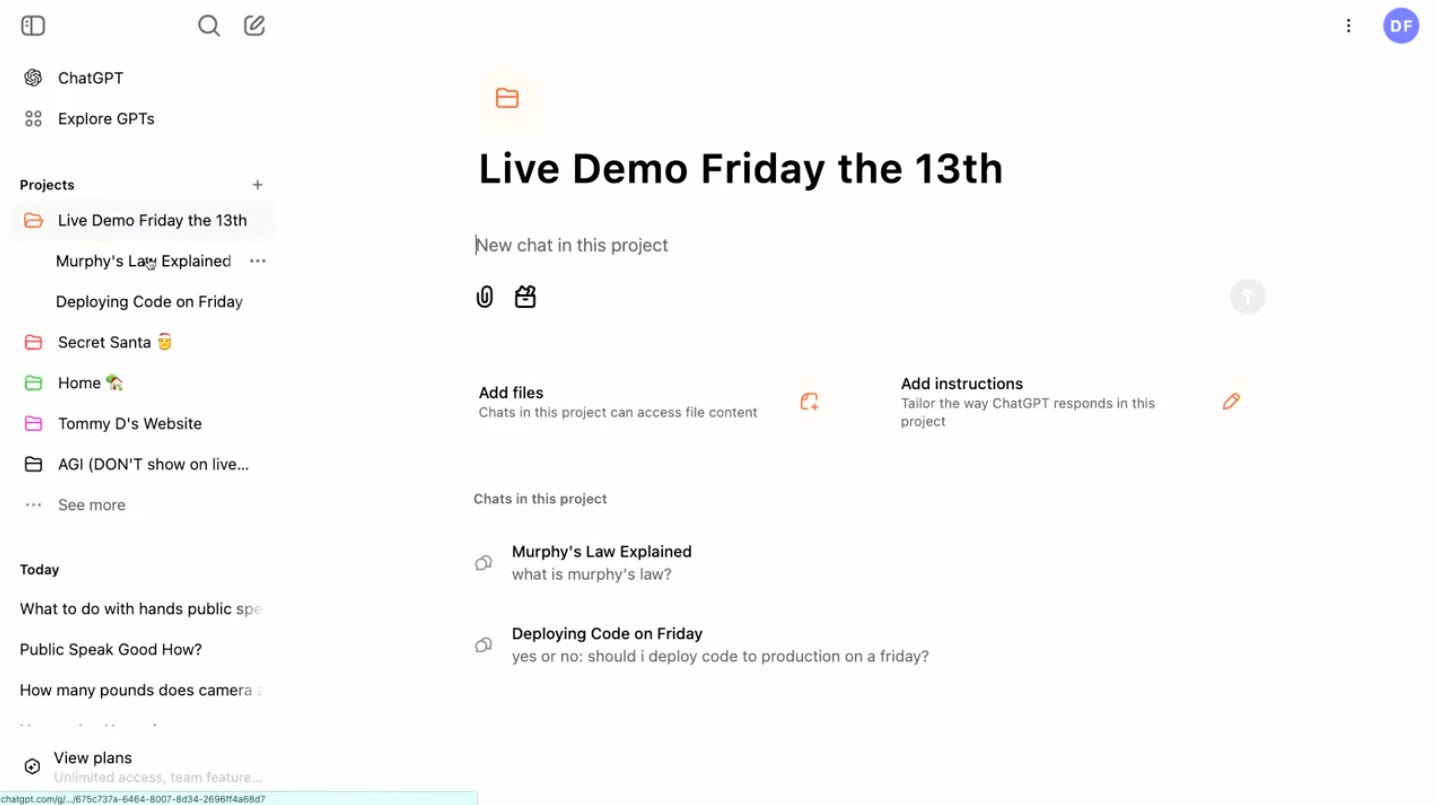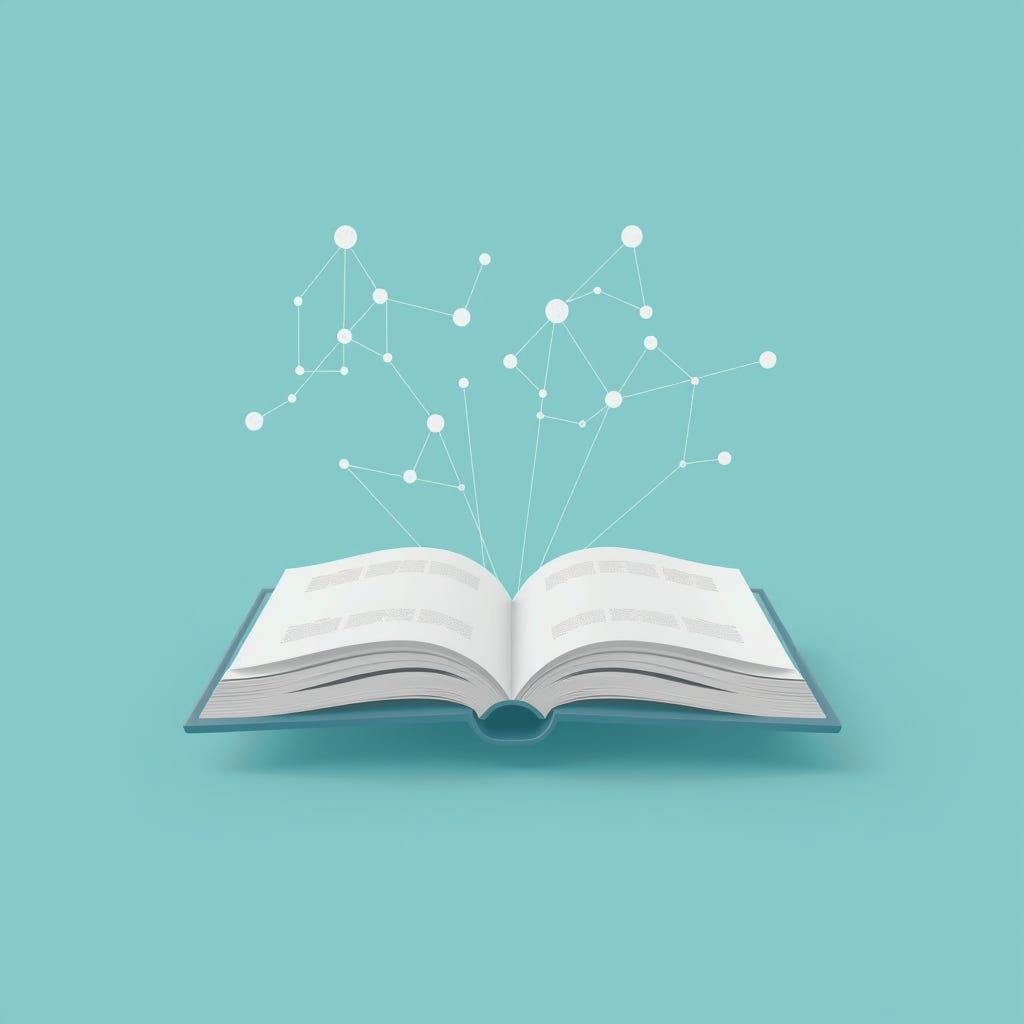🤝 The future of reading
when AI becomes your personal reading companion
Dear curious mind,
Reading has always been a gateway to knowledge, imagination, and personal growth. As we stand at the intersection of traditional reading and artificial intelligence, we're witnessing the emergence of a fascinating new chapter in how we consume and interact with written content.
In today's issue, I dive deep into how AI is transforming the reading experience - not by replacing it, but by enhancing it in ways that make reading more engaging, personalized, and enriching than ever before. We'll explore how AI can serve as an intelligent reading companion while preserving the fundamental joy of losing yourself in a good book.
In this issue:
💡 Shared Insight
The Future of Reading: AI as Your Personal Reading Assistant
📰 AI Update
OpenAI Released The Text-2-Video Model Sora Turbo
ChatGPT Projects: Smart Folders for Plus and Pro Users
The Next LLM Generation from Google Has Arrived With Gemini 2.0 Flash
NotebookLM: Interactive Audio Overviews and Plus Plan Launch
🌟 Media Recommendation
Ilya Sutskever at NeurIPS 2024: The End of Pre-Training and Path to Superintelligence
💡 Shared Insight
The Future of Reading: AI as Your Personal Reading Assistant
How will AI change reading? The obvious answer—summarization—feels like a shortcut that sacrifices the joy of the journey. Instead, I envision a future of augmented reading, where AI acts as a personalized guide, enhancing our understanding and connection with the text. A recent post from one of the biggest names in AI, Andrej Karpathy, showed that he shares this vision.

Rather than replacing traditional reading, AI will enhance it by acting as an intelligent companion that understands both the text and the reader. This shift presents exciting possibilities for how we engage with books and articles, making our reading experience more personalized and enriching than ever before.
How AI Will Transform Reading
Contextual Understanding
Instant explanations of complex words, sentences, or entire passages
Deep diving into specific concepts without losing your reading flow
Making connections between different parts of the book
Personal Knowledge Integration
Linking current reading material with your existing notes
Identifying connections to your personal interests and research areas
Creating custom cross-references based on your reading history
Interactive Experience
Prime yourself before reading by chatting with an LLM about the book
Voice-activated queries while reading
The future of reading isn't about replacing the author's voice – it's about enriching it. Imagine reading a book while having access to a knowledgeable companion who understands your interests, reading history, and learning goals. This AI assistant could help you prime yourself before starting a new book by guiding you through the table of contents, key figures, and background information.
For fiction readers, AI can serve as a spoiler-free guide, helping you keep track of characters and plot points without revealing future developments. It could even generate visual aids like maps based on the book's descriptions, enhancing your understanding of the fictional world.
We're already seeing glimpses of this future with apps like Readwise Reader's and its Ghostreader integration, which allows readers to ask questions about their reading material and automatically save responses for later reference. This tool represents the first steps toward a more integrated reading experience where AI serves as a thoughtful companion rather than a replacement for traditional reading.
The Way Ahead
Keeping the balance right between tech help and the joy of reading is the key to this transformation. The goal isn't to bypass the author's carefully crafted words, but to enhance our understanding of them through intelligent, contextual support.
Of course, there's the risk of information bubbles and algorithmic bias. But a thoughtful reader can leverage AI's suggestions as starting points for exploration, remaining open to diverse perspectives and critically evaluating the information presented.
The future of reading is not about replacing the author's words but enriching them. By combining the human element of storytelling with the power of AI assistance, we can unlock deeper understanding, personalized learning, and a truly immersive reading experience. The future of reading isn't about reading less – it's about reading better, with AI as our trusted reading companion.
📰 AI Update
OpenAI Released The Text-2-Video Model Sora Turbo (@OpenAI on 𝕏)
Sora was initially announced by OpenAI in February, but only a few people outside of OpenAI got access to it. The faster Turbo version of their text-to-video AI is now available for all paying Plus and Pro users - except the ones living in the EU. The created videos are still impressive, but meanwhile many competitors caught up.
ChatGPT Projects: Smart Folders for Plus and Pro Users (OpenAI on YouTube)

Creating projects in ChatGPT is one of the most requested features, and now it is released. Now everyone can group related conversations and provide context-specific files and instructions in ChatGPT without creating separate Custom GPTs. For those using the PARA framework or similar organizational systems for personal notes, this functionality allows you to represent these buckets and get tailored responses for your requests.
The Next LLM Generation from Google Has Arrived With Gemini 2.0 Flash (@sundarpichai on 𝕏)

Pretty impressive to see the smaller Gemini 2.0 Flash actually beating its bigger brother Gemini 1.5 Pro while being twice as fast. The new model is especially strong in coding related tasks. It can currently be used for free in AI Studio. Can't wait for the larger versions of this model family to be released.
NotebookLM: Interactive Audio Overviews and Plus Plan Launch (@stevenbjohnson on 𝕏)

Big moves from NotebookLM! The interactive voice feature feels like their answer to ChatGPT, but I will need some testing to see if it delivers. It is a staged roll-out which is expected to be completed next week. While writing this newsletter, my user interface in NotebookLM updated to the new design, but I did not yet test the interactive audio overviews.
🌟 Media Recommendation
Ilya Sutskever at NeurIPS 2024: The End of Pre-Training and Path to Superintelligence
Ilya Sutskever co-founded Safe Superintelligence Inc. (SSI) in June 2024, alongside Daniel Gross and Daniel Levy. Before, Sutskever was a co-founder and the chief scientist at OpenAI. His media appearances are rare, but now he gave a remarkable talk at NeurIPS 2024 titled "Sequence to sequence learning with neural networks: what a decade", reflecting on the paper that helped lay the foundation for modern language models.
AI’s current status and the path forward:
Pre-training as we know it will end due to limited data availability - "data is the fossil fuel of AI" with only one internet's worth of content
The path forward may include:
Agentic AI systems with true reasoning capabilities
Synthetic data generation
More efficient inference computation
Self-aware AI systems that can autocorrect and understand their own limitations
Superintelligence will be qualitatively different from current AI systems:
Truly agentic rather than merely responsive
Capable of genuine reasoning, making it more unpredictable
Able to understand concepts from limited data
Likely to develop self-awareness as a useful capability
My take: This talk provides rare insights into how one of AI's leading figures views the field's trajectory. The emphasis on reaching the limits of pre-training suggests we're approaching a paradigm shift in AI development, which was already initiated with the release of o1 from OpenAI.
Disclaimer: This newsletter is written with the aid of AI. I use AI as an assistant to generate and optimize the text. However, the amount of AI used varies depending on the topic and the content. I always curate and edit the text myself to ensure quality and accuracy. The opinions and views expressed in this newsletter are my own and do not necessarily reflect those of the sources or the AI models.


